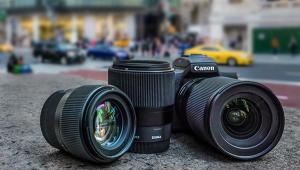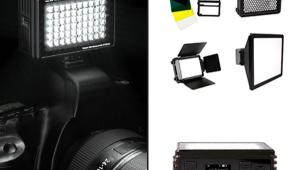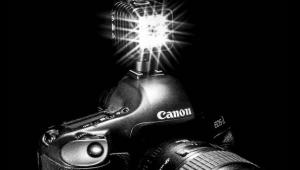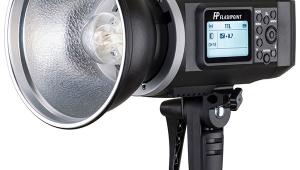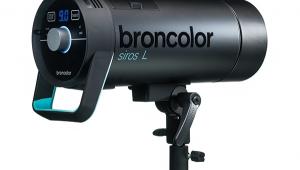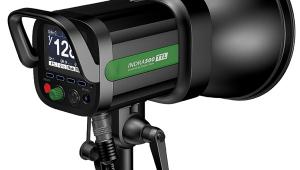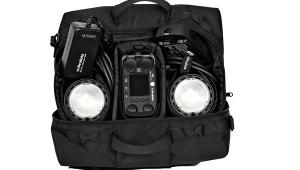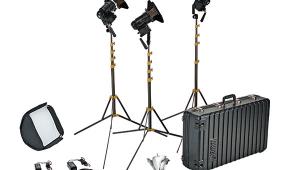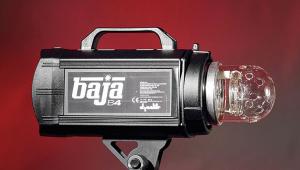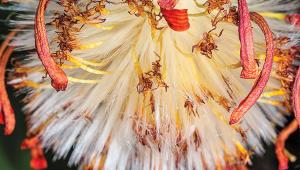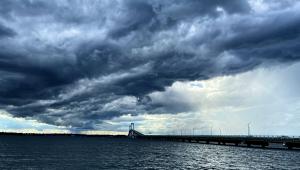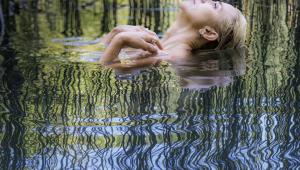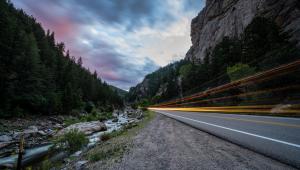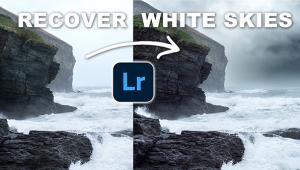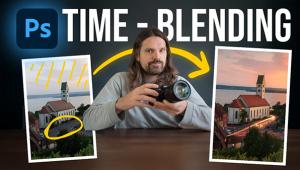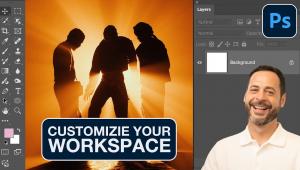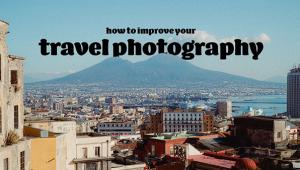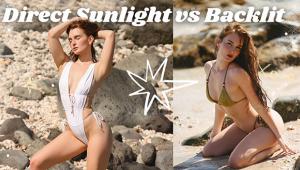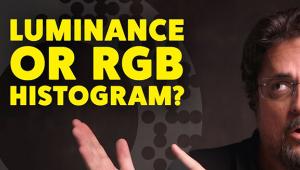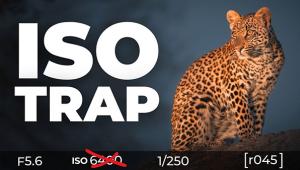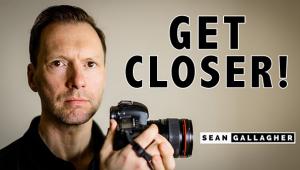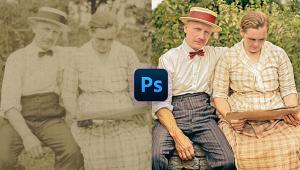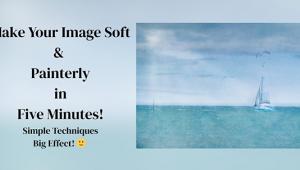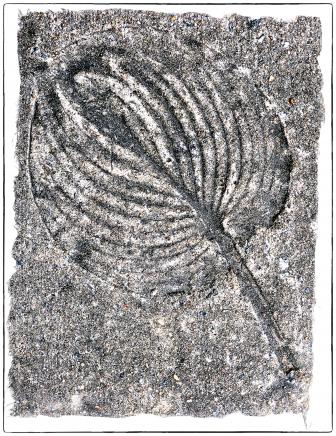Elinchrom D-Lite RX ONE To Go Kit: Compact And Versatile Monolights
First impressions: the D-Lite RX ONE To Go Kit includes a pair of Elinchrom monolights so you know it’s going to contain quality products. Then you discover that the maximum output of each light is 100 watt seconds and you start to think you’ll need more power. That’s until you’re reminded that this fully loaded two-monolight Elinchrom kit sells for less than $700. Interested now?



What’s New
There are really two D-Lite RX ONE To Go Kits: the Umbrella Kit retails for $649.99 and includes two D-Lite RX ONE monolights, two 6” reflectors, 32” white and translucent umbrellas, and two Manfrotto 367B 9-foot light stands along with carrying cases for heads, reflectors, umbrellas, and cables. The Portalite (Softbox) Kit, which I tested, sells for $699.99 and includes two D-Lite RX ONE monolights, two 26” square Portalite softboxes, two Manfrotto 367B 9-foot light stands, and carrying cases for heads, reflectors, speed rings, and light banks. Both kits include a Skyport RX Speed Transmitter so you get wireless triggering right out of the box.
The D-Lite RX ONE monolight is at the heart of both kits and delivers its maximum power over a five-stop range. The monolight has a built-in EL-Skyport Receiver that has eight channels with four groups offering synchronization up to 1/320 sec with enabled SLR cameras. Visual flash confirmation mode dims the monolight’s modeling lamp during recycle and an intelligent slave cell, if you decide to use it, ignores a speedlight’s pre-flashes to trigger the monolight at the correct time. From your e-mail I know you’re interested: each D-Lite RX ONE has a 5v sync socket to protect your expensive digital SLRs when used with the included cord.

All Photos © Joe Farace

Setting Up
Assembling all of the pieces and parts that make up the D-Lite RX ONE Portalite To Go Kit should be easy for anyone who’s ever been around studio lighting gear. Newbies might glance at the 130-page (six language) User’s Guide, but I’m guessing most people will use the two-sided Quick Start Guide card and be up and running in a few minutes, not counting assembling the light banks.
Tip: The mini floodlight-shaped modeling lamp takes a turn or so more than you might be comfortable doing but snug it up; if it doesn’t light, then chances are another half turn will do it.
All of the kit’s components are made from high-quality materials with the only surprise being the lightweight power cord; it seems more like lamp cord until I remembered that the power this cord carries is modest compared to other monolights—including Elinchrom units I’ve tested in the past (March, 2012, issue of Shutterbug).
The as-tested kit includes two 26” square Portalite light banks, which are lightweight and basic in design, making them easy to assemble either on or off the D-Lite. Attaching the light bank to the monolight using the lightweight speed ring is simple. You mount the speed ring, then rotate and lock it in place with a sliding tab that’s located on the monolight’s front edge. However, removing the light bank/speed ring can be stiff the first time you try it. After that, it’s as smooth as butter. The kit’s speed rings are specific to Portalite light banks and if you later decide to use one of Elinchrom’s Rotalux softboxes you’ll need a different speed ring because of their dissimilar construction. After you install the support rods inside a Rotalux light bank, for example, you don’t have to remove them.
The monolights are umbrella friendly, with Elinchrom having solved the dilemma of European spec (7mm) vs. American (8mm) incompatible shaft sizes. The receptacle inside a D-Lite RX ONE accepts 7mm shafts, but umbrellas with 8 to 10mm shafts can use the external fitting on the monolight’s stand mount. Kudos to Elinchrom for bridging this problem with a solution that lets you use anybody’s umbrella no matter where it was made. The Portalite Kit includes speed rings but not reflectors, so if you decide you want to use umbrellas, standard reflectors ($34.99) are available.
Tip: Thrifty shooters and occasional umbrella users can make their own temporary reflectors by using Rosco’s Matte Black Cinefoil. You can use Elinchrom umbrellas ($39.95) or get umbrellas from Lastolite, including the awesome 71” Mega Umbrella ($99.99), and have a system than can handle any kind of lighting challenge you can throw at it in an easy-to-carry location lighting kit.


Tests And Results
During my initial shoot I kept the D-Lite RX ONE output levels at half power to quarter power to balance output with recycle times and never lost a single shot, even when working with an active model like Pam Simpson. Working with the light’s manual controls was straightforward and the Skyport RX Speed Transmitter performed flawlessly.
The Elinchrom monolights provide visual flash confirmation and have a beep that signals full recycle, but it can be turned off. I like a quiet set and turned it on for only one monolight to avoid the odd Doppler sound of two staggered beeps when different power levels are selected on each head. On the other hand, if you play music in the studio, this might be just what you need. Similarly, the fans inside the monolights are designed to kick on only when needed and to my ears tended to be on the loud side. But the fans didn’t bother any of the models I photographed during testing.
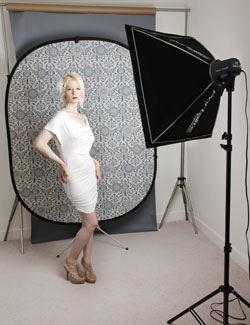

Because of the square shape of the Portalite light banks, one of my lighting setups was a modified headshot set up with each D-Lite RX ONE monolight placed at 45 degrees to the subject along with a small reflector to fill shadows under the subject’s chin. With the monolights at half power and the camera set at ISO 200 I was able to achieve an exposure of 1/100 sec at f/20, so you can dial the power settings back to whatever aperture you prefer and reap the benefits of faster recycle times. At no time during any of my testing did I feel a need to increase my camera’s ISO setting beyond what would be considered a normal range.


Wi-Fi Capabilities
The remainder of my testing was made with the optional ($199.99) EL-Skyport Wi-Fi module that permits remote operation of the RX ONE via an iOS device or Mac OS or Windows laptop (see “Wireless Control of Monolights” sidebar). Since not everybody has an iOS device—hello Android users—I used a MacBook Pro laptop resting conveniently on a Savage Tech Table. To use a laptop you’ll need the optional ($29.99) EL-Skyport USB RX Transceiver.
Set up was simple: plug in the USB RX Transceiver; turn on the EL-Skyport Wi-Fi module, monolights, and on-camera transmitter and when you launch the application it immediately recognizes all of the components, giving you full lighting control. Initially, I thought the Wi-Fi module would be a luxury for my small (11x15 foot) studio but over time it became a convenience and then a necessity. With a larger studio with a large number of sittings/sessions per day, the EL-Skyport Wi-Fi control will quickly become indispensable. In the series of computer-controlled exposures made using the EL-Skyport Wi-Fi module I photographed Pam Simpson who was wearing fashions provided by Umba (www.umbalove.com) of Boulder, Colorado.

Recommendations And Conclusions
The Elinchrom D-Lite RX ONE To Go Kit—either version—represents a best buy and is the least expensive entry into a European lighting system. If you can swing the extra money and add the EL-Skyport Wi-Fi module you’re off to a good start with an amazingly capable and affordable lighting system. Best of all, the kit is an entry into a larger system that has the added benefit of being able to expand its capabilities as your needs and equipment budget grows by adding other components from Elinchrom.
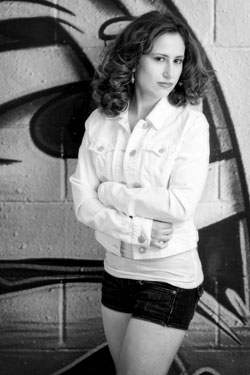
Lastolite Double-Sided Backgrounds
Readers always ask about the backgrounds used for these lighting reviews and when testing the Elinchrom D-Lite RX ONE To Go Kit I used a 5x7-foot Lastolite Distressed Paper/Graffiti Urban Collapsible Background ($224.99) for some shots. The backdrop has a metal frame and opens and closes much like a large collapsible reflector. It folds easily and stores in a nicely made zippered case. Lastolite’s Urban Collection has patterns printed on both sides with built-in shadows so it can be used indoors to simulate an outdoor look. The screen-printed muslin can be mounted on Lastolite’s Bracketed Stand ($69.44) or just leaned against a wall, which is what I did. The fabric can be spot cleaned with warm water and a mild detergent.

Wireless Control Of Monolights
Computer-controlled lighting is nothing new, but what’s new with the D-Lite RX ONE To Go Kit is having it in an affordable system. Using the EL-Skyport Wi-Fi module along with an iOS app or the Mac OS EL-Skyport software on your laptop, you can remotely control each of the D-Lite RX ONE’s control settings. The rechargeable Wi-Fi module features eight channels and runs on a lithium-ion battery that lasts for 10 hours. Its 40-bit security ensures interference-free operation at up to 164 feet outdoors and 65.6 feet indoors. EL-Skyport is easy to set up by following the clear instructions found in a small single-page Quick Start Guide.
Tip: Entering the app’s full name “Elinchrom Skyport Wi-Fi” will help you find it faster in the App Store. When used on your laptop as I did, the EL-Skyport software provides additional features such as flash delay for a strobing effect.

For more information and full specifications, contact Manfrotto Distribution Inc. at www.manfrottodistribution.us.

